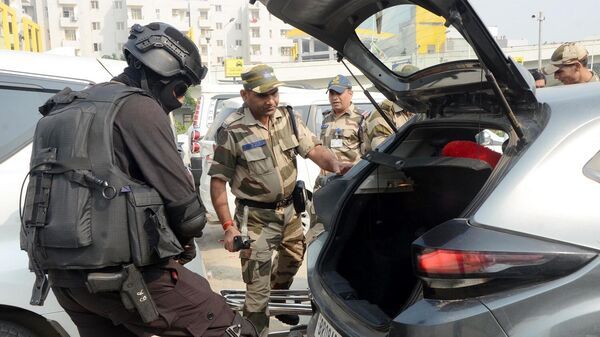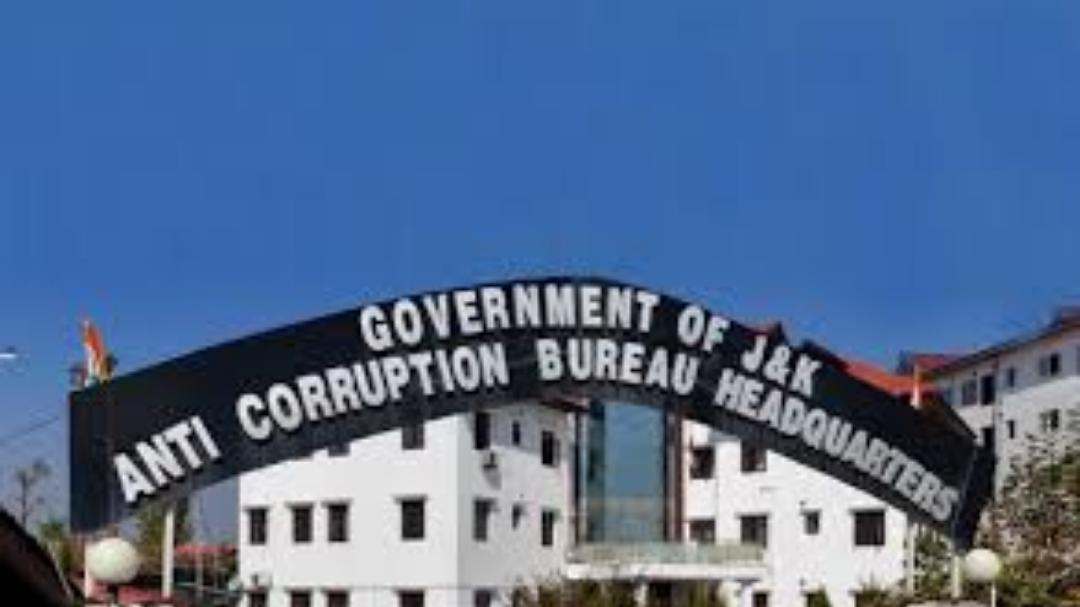Lieutenant Governor Manoj Sinha chairs high-level review as forces intensify border surveillance, highway checks, and urban security measures.
By: Javid Amin | 11 November 2025
In the wake of the Red Fort car blast in Delhi that claimed over ten lives on November 11, Jammu and Kashmir has been placed under a statewide high alert, with security forces launching intensified counter-terror and surveillance operations across the Union Territory.
Officials confirmed that Lieutenant Governor Manoj Sinha chaired a high-level security review meeting in Srinagar late Monday evening, directing all districts — particularly border zones and urban centers — to maintain maximum vigilance and inter-agency coordination.
Heightened Alert Post-Delhi Blast
The explosion near Gate No. 1 of Delhi’s Red Fort Metro Station, which also destroyed several vehicles, has triggered a wave of precautionary actions in J&K amid fears of coordinated networks.
Security sources revealed that the Delhi blast coincided with ongoing counter-terror operations in multiple northern states, including Haryana, Uttar Pradesh, and Jammu and Kashmir, where a terror module involving doctors and Jaish-e-Mohammed (JeM) operatives was recently busted.
“The timing and nature of the blast indicate an attempt to destabilize public confidence. J&K remains a crucial security frontier in this chain,” a senior intelligence officer told Kashmir InFocus.
Ground-Level Security Reinforcement
Across the region, a multi-layered security grid has been activated.
-
Checkpoints have been reinforced on the Jammu–Srinagar National Highway, especially around the Navyug Tunnel, Awantipora, and Banihal sectors.
-
Sniffer dogs and advanced explosive detectors are being deployed at critical junctions.
-
Door-to-door searches are underway in Pulwama and Budgam, targeting suspected hideouts and sleeper cells.
-
Railway stations, religious sites, and high-footfall public areas — including Mata Vaishno Devi Shrine — are under intensified surveillance with added CCTV coverage.
Police officials confirmed that over 100 individuals were detained across 10 districts in a preemptive sweep just hours before the Delhi explosion — part of what insiders describe as a “zero-tolerance protocol” against any possible sleeper network activation.
Border Security and Infiltration Threats
Meanwhile, Kupwara’s Keran sector witnessed a fierce gunfight on Sunday night after troops intercepted an infiltration attempt along the Line of Control (LoC).
Officials said the encounter highlights the seasonal escalation in infiltration attempts as militant groups try to push operatives into Kashmir before heavy snowfall blocks traditional routes.
A senior Army official based in Tangdhar said,
“Cross-border movement is being monitored minute-by-minute. With winter closing in, there’s always a spike in infiltration efforts, and our troops are on high alert.”
Patrolling has been stepped up in Uri, Keran, Poonch, and Rajouri, supported by drones, night-vision surveillance, and radar grids.
Unified Security Coordination and Strategy
In the Srinagar review meeting, LG Manoj Sinha directed the J&K Police, Army, CRPF, BSF, and intelligence units to adopt a unified operational strategy with real-time data sharing.
He stressed the importance of seamless communication between civil and military administrations, particularly in border districts and pilgrimage routes.
“The goal is not only to respond but to pre-empt. Every agency must work as one unit,” the LG was quoted as saying.
Security advisors also briefed him on digital intelligence mapping, identifying online radicalization channels and cross-border communication nodes that could link the Delhi blast to transnational networks.
Strategic Context: From Delhi to Srinagar
This alert comes amid broader national concerns over urban-terror linkages and the re-emergence of white-collar radical networks, after recent arrests of professionals and doctors in connection with terror modules operating between Kashmir and North India.
The Delhi blast — occurring barely days after a 350-kg explosive haul in Faridabad — has prompted multi-agency coordination, extending surveillance beyond physical borders into financial and digital ecosystems that may fund or facilitate attacks.
Public Advisory
Authorities have urged citizens to remain vigilant and cooperative with security checks.
-
Commuters have been advised to avoid carrying unverified packages and report unattended vehicles or bags.
-
Security forces have asked transporters, hotel owners, and internet café operators to maintain visitor logs and CCTV backups for at least 30 days.
Bottom-Line: Alert Yet Steady
As J&K stands on high alert, officials emphasize that the situation remains under control, with no immediate threat reported within the Union Territory.
The message from Srinagar to New Delhi is one of preparedness, coordination, and vigilance — a signal that Jammu and Kashmir’s security grid remains resilient amid renewed challenges from across and within its borders.


